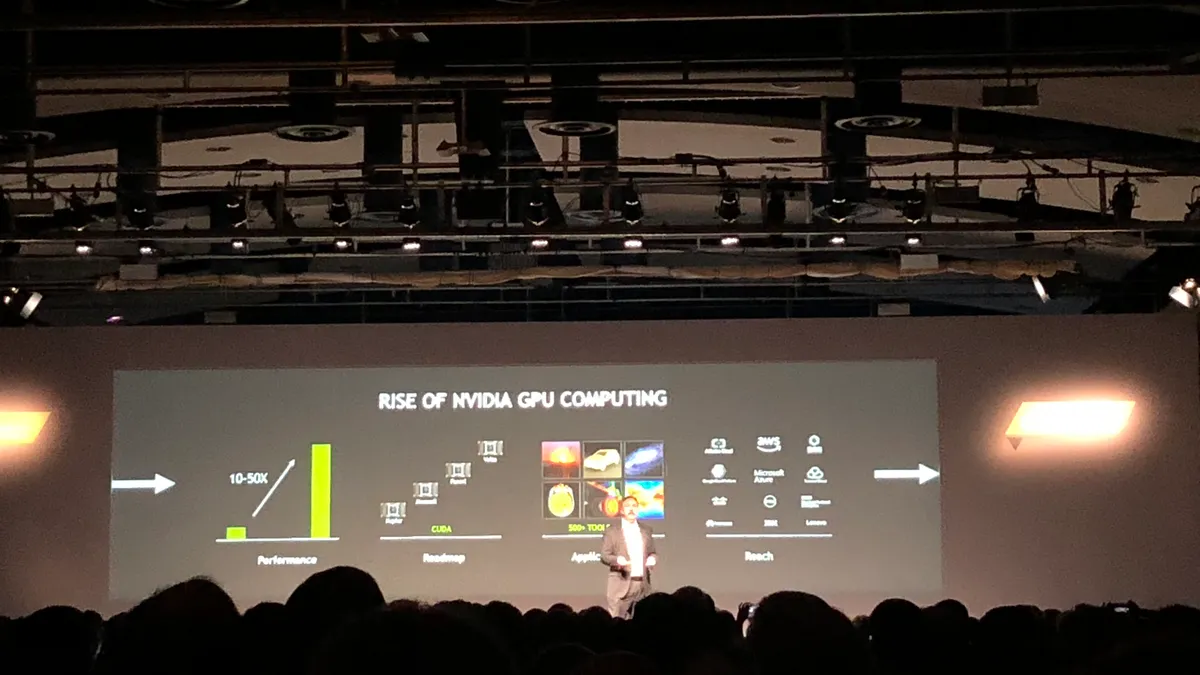Dive Brief:
- NVIDIA announced plans to expand its Deep Learning Institute (DLI) with the free Ambassador Program, said Greg Estes, VP of developer marketing at NVIDIA, speaking at the GPU Technology Conference in Washington D.C. Wednesday. The DLI is also partnering with Booz Allen Hamilton and deeplearning.ai to aid AI training for government organizations.
- To better accommodate students and close the talent gap in AI, the Ambassador Program will tap into universities that possess the field's top thought leaders. Those instructors will be trained specifically in DL and offer those classes for free to either students or those already in the field looking for training.
- Still, there is tension across industries that obstruct talent sharing, according to Daniel Larson, a physics professor at Penn State University. There is a large fear in educators that the market and enterprise side of tech is moving talent away from basic research that is not just "curiosity driven," according to Frederica Darema, director of the Air Force Office of Scientific Research.
Dive Insight:
IT departments in the public and private sector struggle with obtaining talent when readily available and affordable educations are not yet universal. To compensate for the growing demand in the field, companies like NVIDIA are offering programs that enable training on a mass scale with little or no costs for students.
Google announced its plans for a free "AI crash course" to expand the ML workforce. This, of course, is not only an aid for industry-wide need for AI talent but it also promotes Google's new AI-based bottom line.
Only about 10,000 individuals worldwide have an advanced AI skill set so companies are no longer looking for applicants with formal education. Even those with "practical experience" can earn anywhere between $300,000- $500,000 salaries and these salaries are expected to rise AI's adoption increases.
However, either formal or informal education may lead emerging tech talent to take their skills away from the "needs-based" research. The public sector simply cannot afford to attract the talent Silicon Valley can and professionals in the field fear that research driven solely by curiosity or the "dot com" desire is not "sustainable," Darema said.













